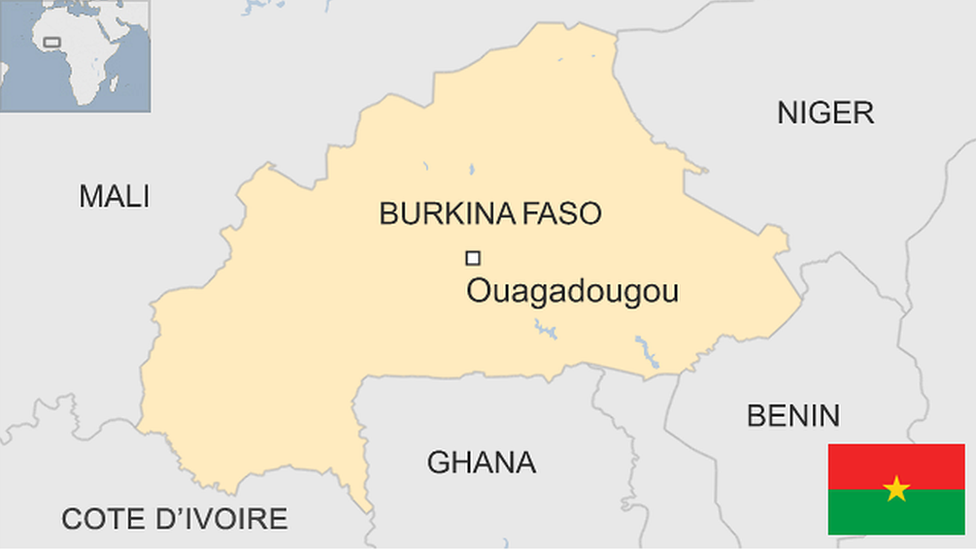Burkina Faso's war against militant Islamists
- Published
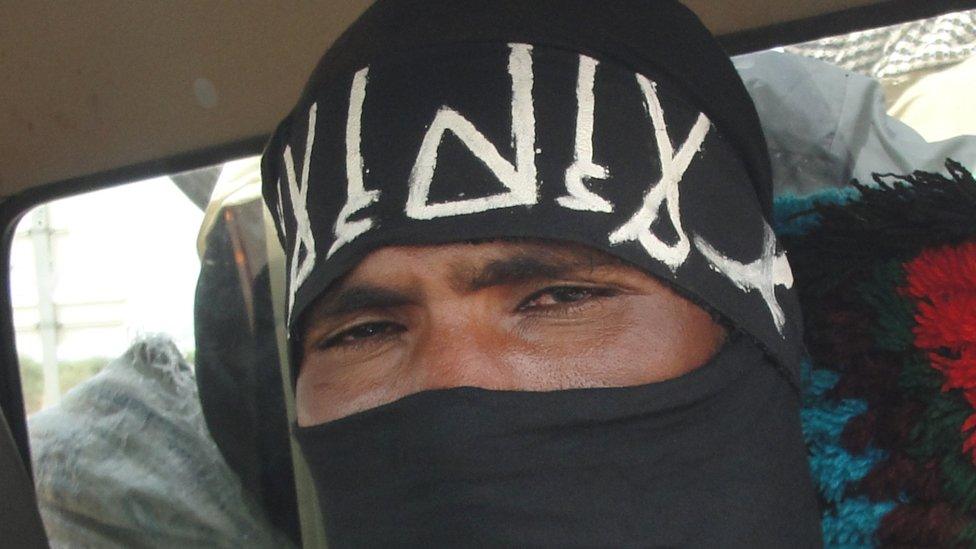
Islamist militants have long operated in the Sahel and now have a foothold in Burkina Faso
Recent attacks on churches in northern Burkina Faso are likely to be the work of jihadists whose activities are growing in the region despite a military operation to contain Islamist militancy.
The country's foreign minister says tackling terrorism has become a fight "for the very survival" of the Sahel region, which incorporates Burkina Faso, Chad, Mali, Mauritania and Niger.
The militants have forced 100,000 in Burkina Faso alone to flee their homes in recent months.
Who are the militants?
Three key Islamist militant groups have established a front in northern and eastern Burkina Faso: Ansarul Islam, the Group for the Support of Islam and Muslims (GSIM) and Islamic State in the Greater Sahara (ISGS).
One of the most audacious attacks of recent years - the January 2016 siege on a luxury hotel that killed 30 people in Burkina Faso's capital Ouagadougou - was carried out by al-Qaeda in the Islamic Maghreb (AQIM), which has since merged with two other jihadist groups - Ansar Dine and al-Mourabitoun - to form GSIM.
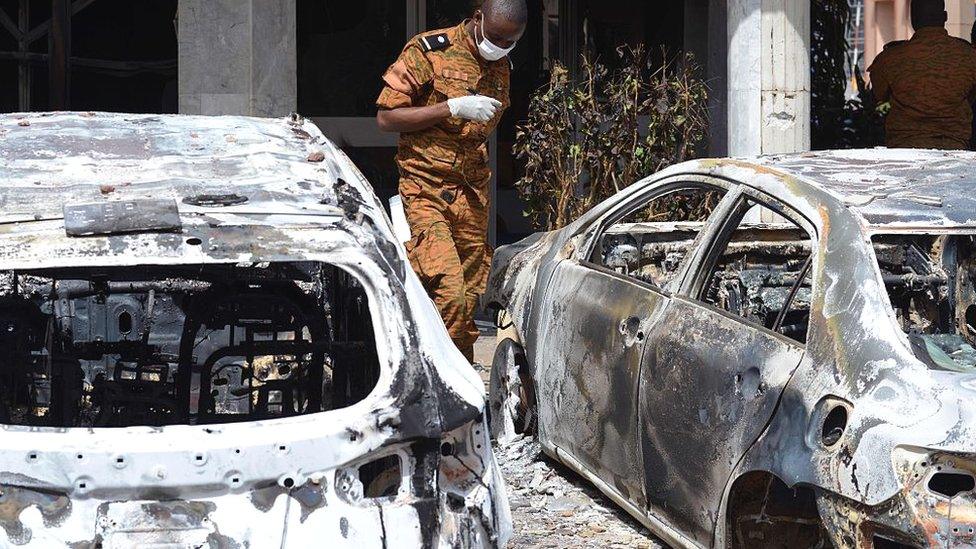
The exterior of the Splendid Hotel was damaged by car bombs in the January 2016 attack
It operates in Mali, Niger and Burkina Faso and was behind two other attacks in Ouagadougou - on a café in August 2017 and the French embassy and army HQ in March 2018.
A propaganda video released last month by the Islamic State (IS) group shows the Sahel's appeal to global jihadism when "brothers" in Burkina Faso and Mali were congratulated for pledging their allegiance.
Ansarul Islam, meaning Defenders of Islam, is the home-grown group, founded in 2016 by the radical and popular preacher Ibrahim Malam Dicko, who is said to have fought with Islamist militants in Mali when they took over the north of country in 2012, prompting France's intervention.
Dicko died in April 2017 and his brother Jafar is now leading the group, which has received logistical support from both AQIM and ISGS, according to Human Rights Watch.
Widespread frustration with the lack of jobs and infrastructure has made Burkina Faso a fertile recruiting ground for jihadists - and there are numerous smaller groups, not all of which are affiliated to larger ones or pledge allegiance to Islamist ideology.
According to the Economist, many are fighting for farmland or against government corruption but "adopt the 'jihadist' label because they happen to be Muslim".
Why are churches being targeted?
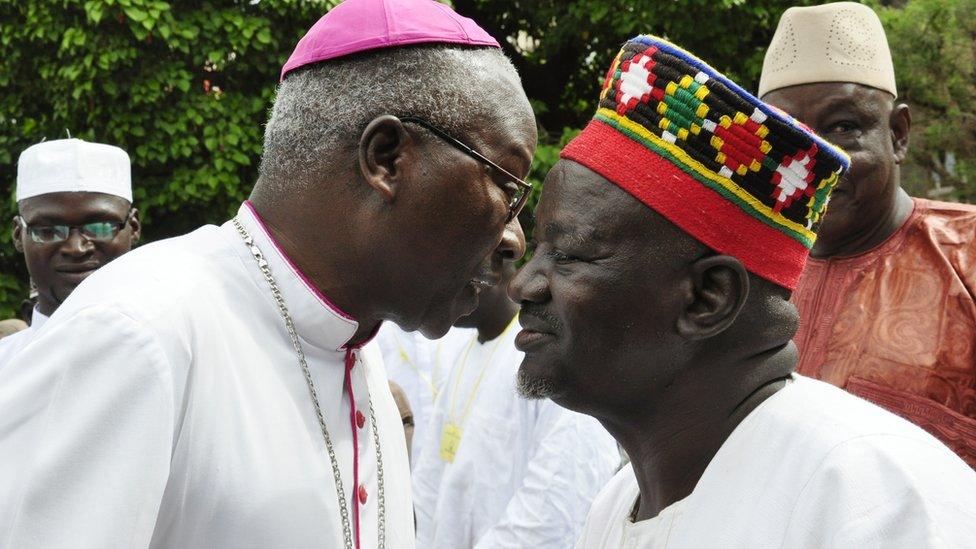
Burkina Faso has a long history of religious tolerance - which jihadists want to undermine
In the last month there have been at least five attacks targeting Christians, several taking place during church services - though no group has said it was behind these assaults, analysts say they have all the jihadists' hallmarks.
It shows a shift in tactics, according to Djallil Lounnas, an expert on militancy in the Sahara at Morocco's Al Akhawayn University.
"Usually religious minorities have not been touched, especially Christian minorities, since jihadist violence broke out in the area," he says.
This is particularly troubling given Burkina Faso's long history of religious tolerance, but it forms part of a jihadist strategy to sow religious and inter-communal conflict.
"It's an old guerrilla, terrorist tactic to increase their ranks by fuelling mass violence," says Louis Audet-Gosselin of the Canadian Network for Research on Terrorism.
Conflict and instability also create the conditions that allow jihadists to install bases and control territory.
How have Islamist militants disrupted life?
"The security situation in the country is degrading almost daily," says Mr Audet-Gosselin. "Jihadist groups are gaining ground bit by bit, forcing state officials and state sovereignty out of several rural areas and increasingly some cities."
Those targeted are often associated with the state - village counsellors, mayors, police officers, civil servants and civilians accused of collaborating with military.
Schools and teachers are soft targets for Islamists militants, who oppose secular education. More than 1,000 schools in the north have been forced to close recently, affecting more than 150,000 children.
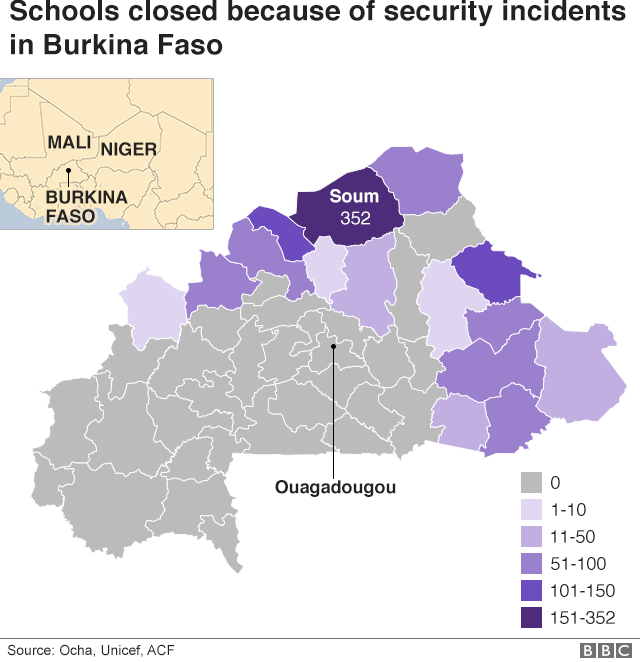

Human Rights Watch has also reported numerous abuses by government forces during counter-terrorism operations, including summary executions of Fulanis, a largely Muslim ethnic group of semi-nomadic herders.
"The army is pretty brutal and tends to single out the Fulani community as a whole, as guilty by association to jihadist groups... which in turn leads to increasing militancy from Fulani youth," says Mr Audet-Gosselin.
A lack of services has created a vacuum that militant groups have been able to exploit by sometimes stepping in to deliver them, but mostly their presence means chaos and violence.
A resident in the northern town of Djibo told the BBC: "Many homes have been deserted. Economic activity has ground to a halt. We no longer have any nightlife. Westerners who are high-value targets have left."
Witnesses say gunmen also sporadically go on the rampage, looting shops and mugging people.

Recent attacks in Burkina Faso
31 December 2018: Suspected jihadists kill seven people in Yirgou, an ethnic Mossi farming community
1 January 2019: In apparent retaliation, villagers in Yirgou then attack Fulani herders in the area, killing 39 people
17 January: A Canadian geologist is found dead after being kidnapped from a mine exploration camp
20 March: Two teachers are abducted from their school in Djibo and killed - the government says kidnappers want to scare teachers into abandoning their posts in the region
3 April: Armed attackers kill seven near the northern town of Arbinda, sparking inter-communal violence that leaves 62 dead according to government
5 April: Four people die when a Catholic church is attacked in a nearby village, the bishop of Dori in northern Burkina Faso told Vatican news agency Fides
28 April: A pastor and at least five other people are killed in an attack on a Protestant church in Silgadji, in the north
11 May: Four foreign hostages - from France, the US and Korea - are freed in Burkina Faso, but a tour guide and two French soldiers are killed in the process
12 May: Gunmen kill six people including a priest during Mass in a church in Dablo before burning the building down
13 May: Four Catholics taking part in a procession honouring the Virgin Mary are killed by gunmen in Zimtenga, in the north of the country
26 May: Armed men kill four Catholic congregants at Sunday Mass in the town of Toulfé

How does it affect Burkina Faso's neighbours?
There are fears the influence of Burkina Faso-based jihadist groups could spread south, giving them access to sea ports through which they could smuggle weapons, drugs and other illegal goods to fund their activities.
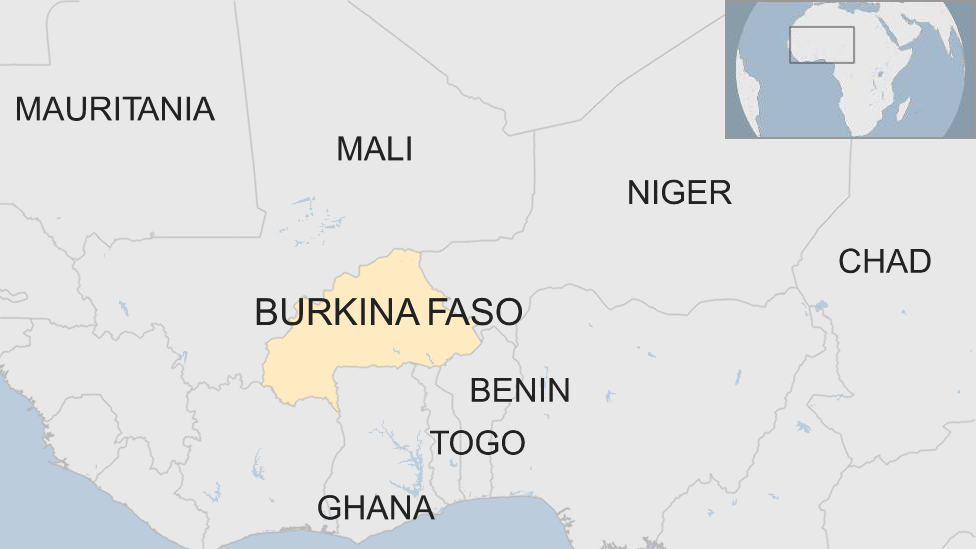
"Burkina Faso is a barrier between the Sahel and the coastal countries in the fight against terrorism. If that is broken down, its neighbours will be affected," warns Burkina Faso's Foreign Minister Alpha Barry.
In April when jihadist leader Oumarou Diallo, who operated in eastern Burkina Faso, was arrested along with some 20 followers, security sources told the BBC they had found evidence he was in contact with people in Togo, Benin and Ghana.
The most high-profile example that this insecurity is already spilling over is the abduction of French tourists from a national park in northern Benin in May.
When French special forces officers secured their release, the kidnappers had already moved them to northern Burkina Faso - and it is believed they were planning to hand them over to Mali-based militants.
French Armed Forces Minister Florence Parly said at the time that there were two main militant groups operating near where the French tourists were taken - one linked to al-Qaeda and the other to IS.
Le Monde newspaper has also reported an unnamed source as saying armed groups have established themselves in northern Togo and Benin in "hard-to-reach forest areas, where traffickers and bandits in the region are rampant".
Who supports the jihadists?
Correspondents say many recruits join up, not out of ideology, but simply because they see it as the only alternative to destitution.
But the concern for the government is the belief by intelligence officials that some ex-soldiers of the presidential elite regiment, the RSP, have been lending Ansarul Islam a hand.
The RSP was a unit set up by former President Blaise Compaoré for his personal security, however when he was ousted in an uprising in 2014, it suddenly felt its existence threatened.
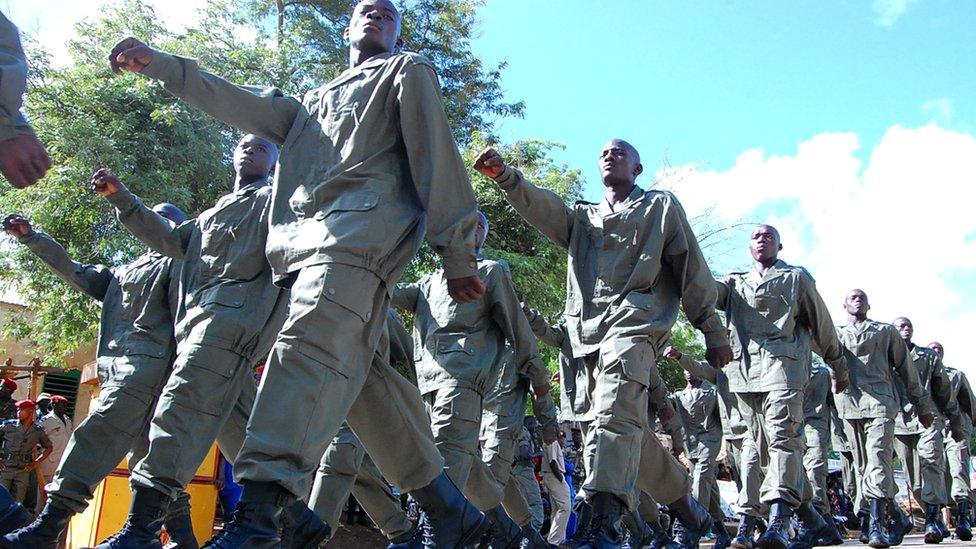
Members of the disbanded presidential elite unit are thought to be fighting alongside the militants
In a bid for survival, members staged a short-lived coup against the transitional government before being forced to hand over power by neighbouring countries.
Fleeing justice afterwards, many RSP members, including an officer called Boubacar Sawadogo, took to a clandestine life.
Officials were quoted by a Malian newspaper in 2017 as saying that they had intercepted a communication between Mr Sawadogo and Ansarul Islam's leader.
The intercept confirmed what the government had long suspected - that former RSP members were taking part in attacks by jihadists both in Mali and Burkina Faso.
What is being done about the Islamist threat?
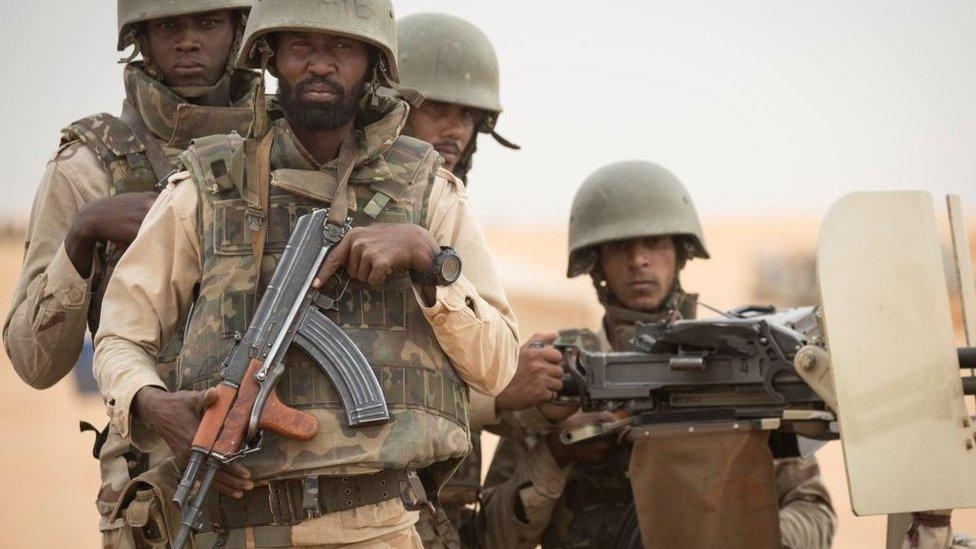
Funds promised for the G5 Sahel regional force have not yet materialised
A state of emergency was declared in several regions in December, granting security forces extra powers to search homes and restrict freedom of movement.
According to the UN, more than a fifth of the country's national budget is spent on defence and security.
But the former French colony, a poor country even by West African standards, is struggling and the security forces remain ill-equipped to tackle the scale of the jihadist threat.
It is part of a five-national regional force, the G5 Sahel, created in September 2017 to take on the militants.
Yet most of the funds pledged by partners and donors - including the European Union - still have not been handed over, says the BBC's Simon Gongo in Burkina Faso.
"Reconstruction of an effective security apparatus with a competent intelligence branch and elite commandos will take time, as will improving the G5's operational readiness," says International Crisis Group in its latest report on Burkina Faso.
France also has some 4,500 troops in the Sahel region in an ongoing counter-terror mission codenamed Operation Barkhane.
- Published11 March 2019
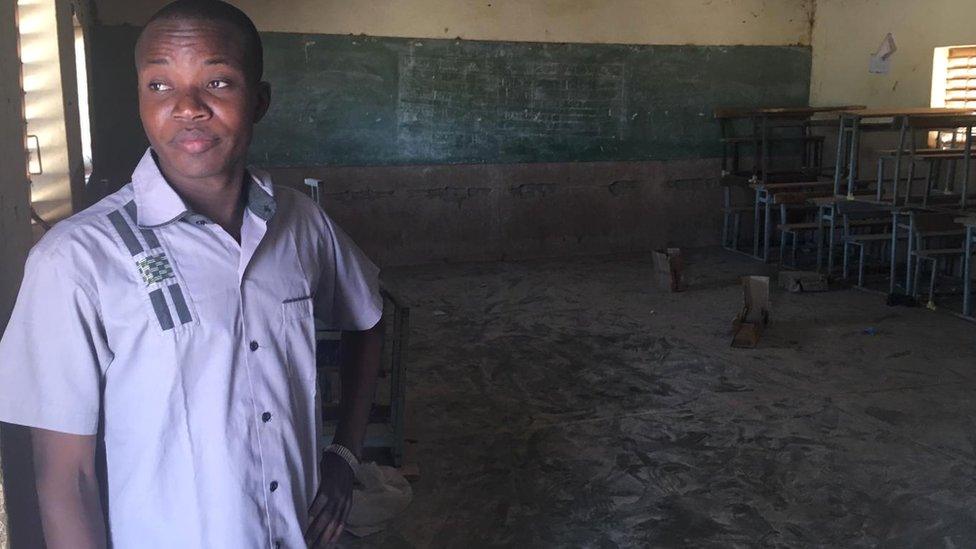
- Published27 March 2019
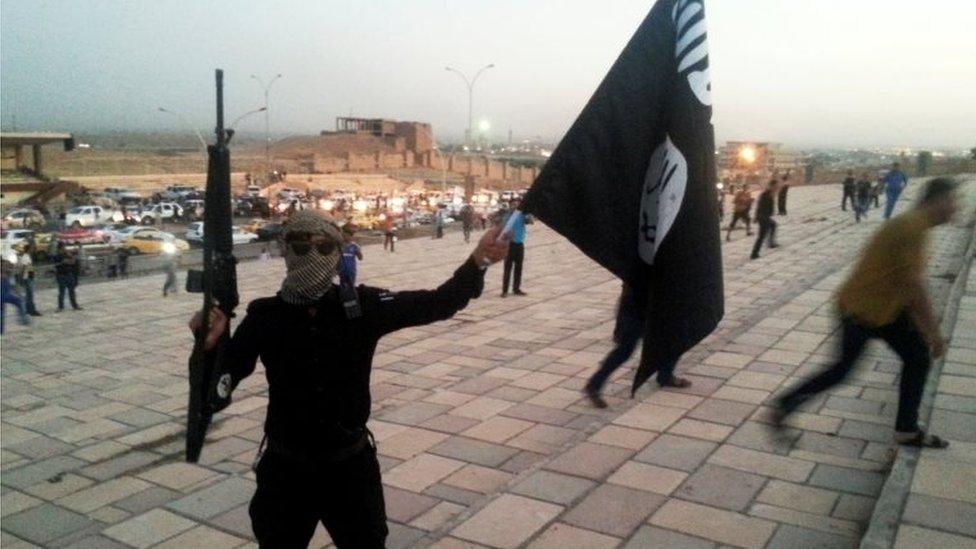
- Published27 January 2019
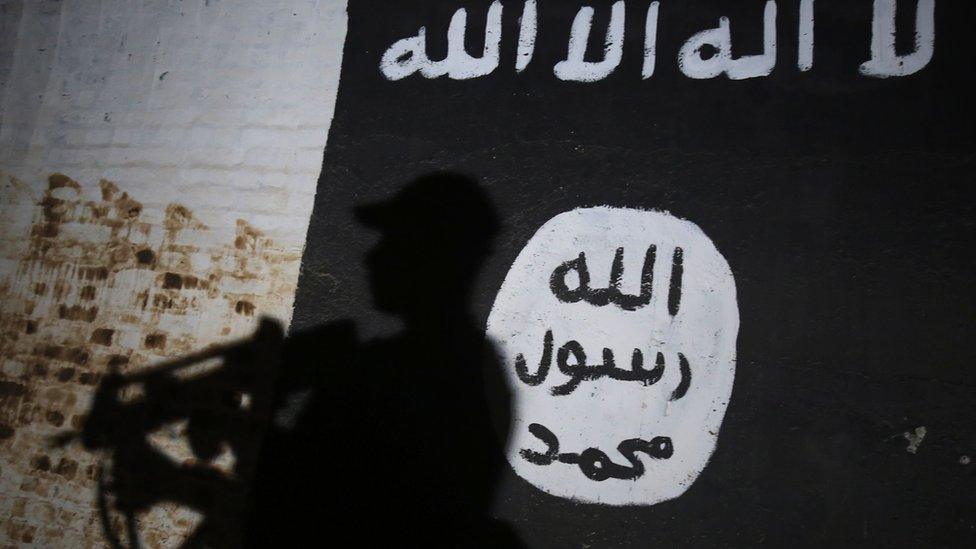
- Published16 January 2016
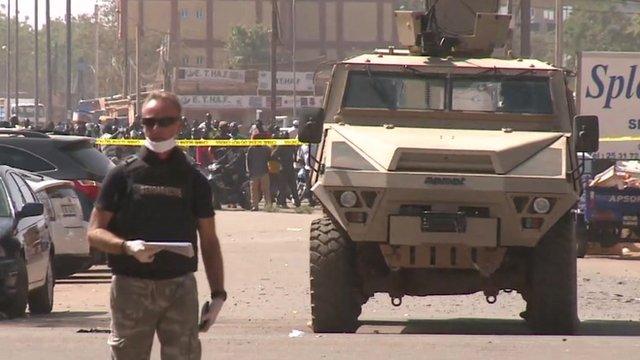
- Published30 April 2014
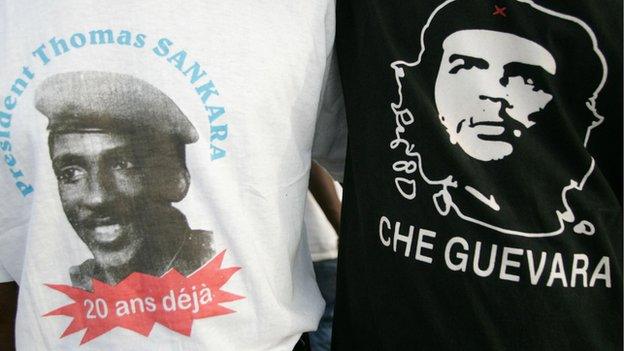
- Published26 February 2024
